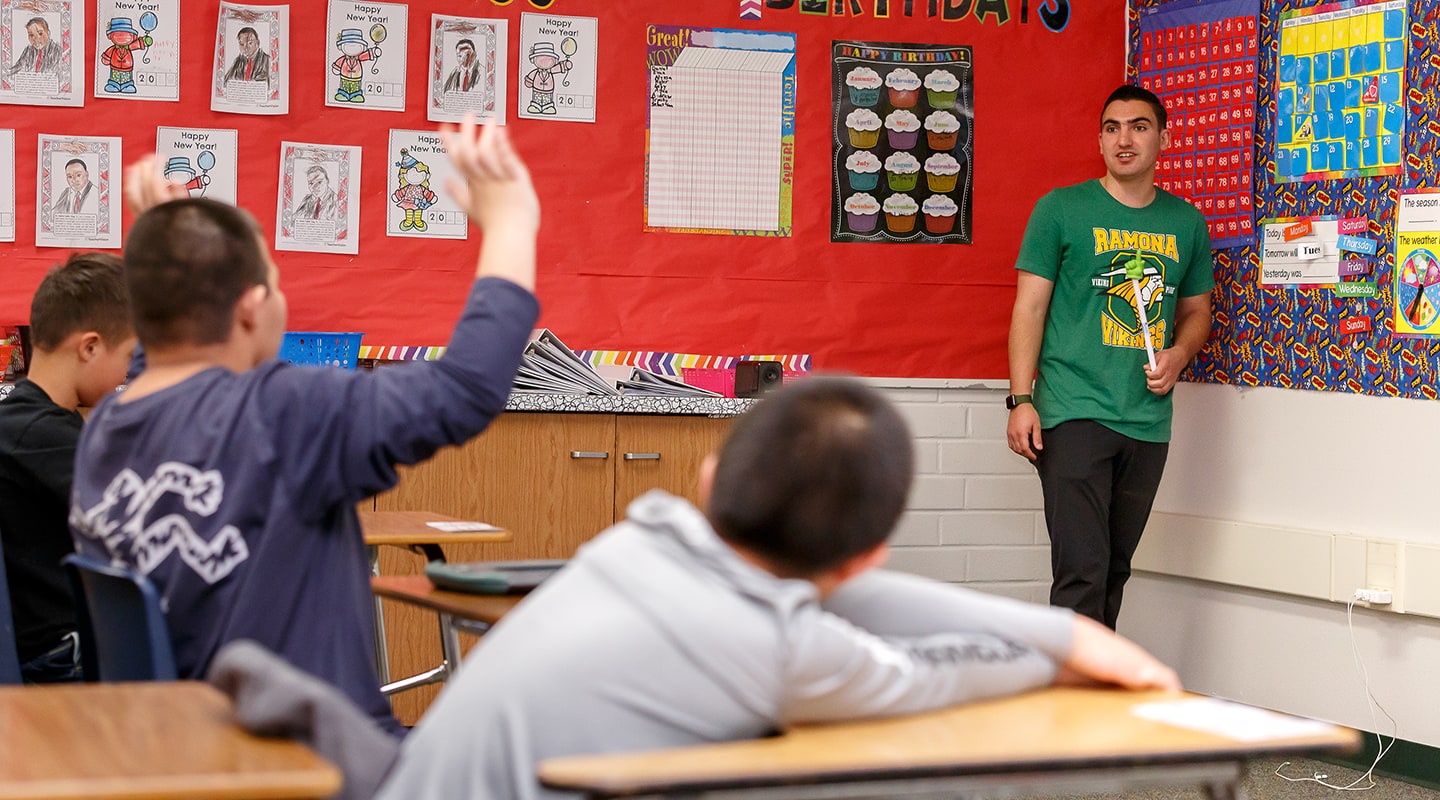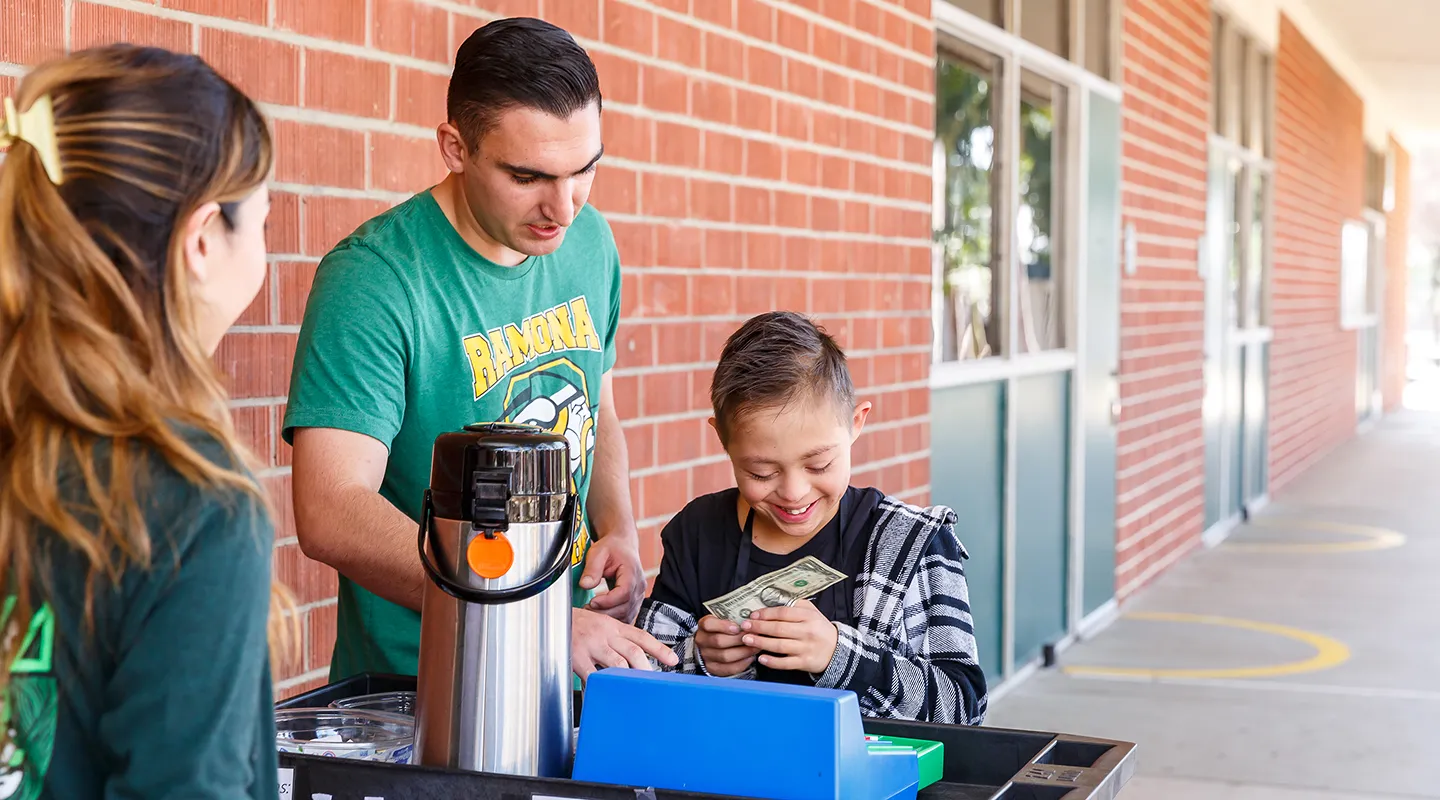- Home
- >
- APU Articles
- >
- News Article
A Look Inside the Rewarding Career of a Special Education Teacher
June 06, 2020 | Written By Tobin Perry
“There’s definitely a lot of challenging days, but what keeps me motivated is knowing that it’s not about me—it’s about the students,” said Tucker Ring, MAEd ’18, a special education teacher at Ramona Middle School in California’s Bonita Unified School District.
Often, those who decide to pursue a career in special education have had an impactful experience with a person who has specific learning needs, says Craig W. Bartholio, EdD, chair of the Department of Special Education at Azusa Pacific University.
“I frequently see teacher candidates with a desire to meet the needs of individuals who have learning differences,” he said. “They want to be a part of making a difference in the lives of these students. There is a special draw for some individuals to work with students who need that extra support, who need a different learning environment, or who benefit from individualized curriculum.”
Heeding a Call to Help
Indeed, Ring knew some of what to expect as a special education teacher because his mom was an educator and his sister had a severe disability. Due to these experiences, Ring has firsthand knowledge of what everyday life can be like for his students and their families.
“My faith does play a role in my teaching because I look at every one of my students as a blessing from God,” Ring said. “Identifying the gifts God has provided my students and focusing on those gifts helps me be a better teacher for them.”

Kevin Corbett, a special education teacher at Tesoro High School in California’s Capistrano Unified School District, shares a similar experience. Corbett was an experienced coach and athlete who was well-known in the district when a fellow teacher approached him about a student with special needs who wanted to be a manager for the track team. As he interacted with the student, he said, God put on his heart a desire to help more students like him. So he sat down with his principal to chart a path toward earning his special education credential, which he completed in 2015.
“These kids need advocates,” said Corbett. “They need people that love them. They need people that will advocate for their needs and mentor them.”
What It’s Like to Be a Special Education Teacher
Corbett noted that he often leans on his background as a coach to help his students thrive. He described one time when he was helping a student with strength training and building up his core muscles in preparation to use a walker. A simple reward (a Tinkerbell doll from Disneyland) inspired the student to put in the extra effort required to make exceptional progress.
Both teachers have used “coffee carts”—a learning activity where students sell coffee to teachers and staff—to develop their students’ social skills and their ability to work with money. Ring said when he first tried this with his students, few of them could use a cash register or interact with customers well enough to be effective. But as he continued to work with them, the students were able to pick up the necessary skills and have since made significant improvements.

Ring recommended that anyone interested in becoming a special education teacher go into the profession with a desire to make a positive impact on the lives of students. That mindset, he said, will change how individuals view success and give them the right motivation to succeed as educators.
How APU Prepares Students for Special Education Careers
Azusa Pacific offers several special education programs to prepare graduate students for a lasting career in the profession. Centered on a Christian worldview, these programs equip teacher candidates to make a meaningful difference in their classrooms and on behalf of their students.
You can choose from two special education credentials. One equips educators to work with students with mild to moderate support needs and the other with extensive support needs.
Teacher candidates can decide to earn a standalone credential, or combine their credential with a master’s degree emphasis in special education or learning and technology. Each program includes foundational courses designed for all teacher candidates, specialization courses for your specific credential, emphasis courses for those earning a master’s degree, and practical teaching experience.
Interested in learning more about a graduate degree or credential in special education at Azusa Pacific University? Check out the School of Education for more information.